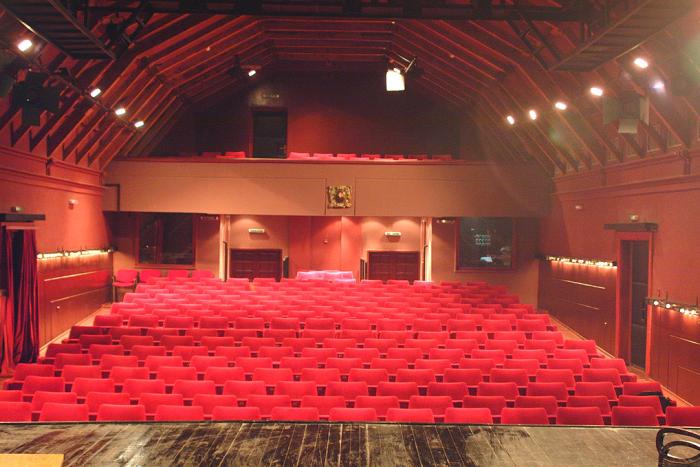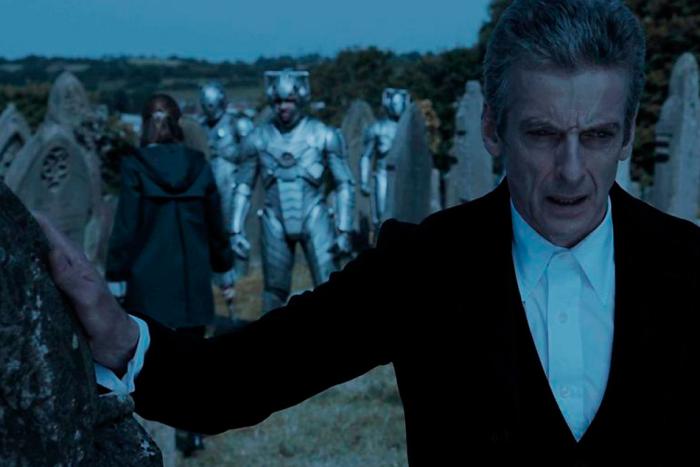What was important to us in 2015? Hazlitt’s writers reflect on the quiet reverberations of the year’s big issues, and the loud ring of its smaller ones.
I mostly just drink wine and try not to cry. I mean, what else are you gonna do when your dad looks at your tits ’cause he thinks you’re his wife? It was just for a split second, but I’ll never forget it.
He repeatedly tells his home care workers how beautiful they are. They are so good at deflecting. I marvel, trying not to be embarrassed. No matter how much you prepare yourself for each new valley Alzheimer’s carves out for you, the slide is always muddy and painful.
Most of the time, he doesn’t really remember that my mother is gone. And when he does, the look of pain and confusion that creeps over his face makes me hope he’ll soon forget. He always obliges. Strange to have moments of gratitude for something that’s slowly ruining a person you love.
*
I met my mom a lot of times in my life.
I met her as an infant, who she cared for, and protected, and fussed over, and photographed. (My GOD, she took so many pictures.)
I met her as an insolent five year old who'd just learned how to escape child-proof door handles, and also how fun a good foot-stomp was. And who insisted, with all sincerity, that she was “going to marry Daddy when I grew up.” Naturally. She'd just laugh and say, “But lamb, Daddy's already married.”
*
Last Christmas, when my mother lay naked in a hospital bed, taking her last breaths next to a man whose cough never ceased, I started to question our healthcare system, started thinking like a Republican, wanting to whisk my mom away to a fancy facility where she could die in peace. She wasn’t even supposed to die. She went into the hospital in May for kidney issues and, as issues bloomed into dialysis sometime in October, I started to understand that she was never coming home. I was in England with my best friend and one night I just fell apart. All the ways I hadn’t been a good enough daughter flooded me with guilt and sorrow.
*
I met my mom as a seven-year-old, with a Master’s in “brat,” as she joyfully welcomed my little brother into the world. I stood in the corner, dressed in my school uniform, pouting at the insolence of this interloper. Why were they so enamoured with this tiny red crying machine? But then she explained to me how to hold him, and I did it with the greatest of care, and started to understand why they loved him.
*
When I got home from England, I tried to tell my brother how scared I was, but he was so sure she was going to pull through I felt like the devil for even suggesting otherwise. When she lost speech and started scribbling “I want to die” and shaking the paper angrily at us, it finally sunk in for him. She was refusing dialysis and we finally allowed her to. It was supposed to take three to ten days. It took twelve hours, the smallest mercy.
*
I met my mom as she shuttled me around to countless schools, locations and activities. Sometimes I even remembered to thank her unprompted.
I met my mom as she shared her interest in the arts with me. We’d go to Cats, be brought to tears by the beauty of “Memory.”
I met her in her classroom when my public school PD days didn't coincide with her high school ones and was always in awe of how comfortable and in control she was as a teacher, how obvious it was that her students adored her. It showed in their patience and gentleness toward me, in their insistence on taking her to the most underground of the restaurants in Chinatown. I mean, they went out of their way to hang out with her on SATURDAYS.
*
My brother, like my mother had, wants so badly for everything to just be like it was. So much so, he can’t help but correct my dad’s vocal fumblings instead of just letting the words swirl and settle where they land. It’s so much easier to be agreeable.
Every once in a while, completely out of the blue, he’ll say something so profoundly logical, I’ll want to grab it and keep it as the new baseline, as proof he’s still in there.
Sometimes, I try to talk to my dad like he’s still my dad, stubbornly refusing to offer up the inane babble that seems to comfort him. It used to help to talk about old memories, to lock him into a time that was still within his mind’s grasp. Like the cottage he helped build in the early ’80s that became the joyous backdrop to summer’s hottest weeks, where we’d canoe, swim and make pancakes on the wood stove. My dad and I would pack lunch to take with us as we toured the trails that wound around our little lake on his dirt bike, me on the back laughing all the way, my brother still too young, looking on from the front porch as we rode off, somehow not jealous. But lately, even cottage stories, of which there are many, don’t seem to move him away from frustration. Every once in a while, though, completely out of the blue, he’ll say something so profoundly logical, and I’ll want to grab it and keep it as the new baseline, as proof he’s still in there.
*
I met my mom as an awkward preteen, and she comforted me and cooed in my ear that I was pretty and if the girls were mean it was just because they were jealous. She was so convincing I almost believed her.
I met her as an awful teen full of angst and ego and vodka and she showed me incredible kindnesses through her hurt. We had a hard time understanding each other under the fallen darkness of the teen years but I never once doubted how deeply I was loved.
*
Every Sunday my dad tells me how he’s sure I’m going to “make something of myself” and I close my eyes for a second too long, let out a breath and try to be okay with being perpetually 21. Sometimes I remind him that I’ve done some things that worked out okay, but it’s exhausting replaying the details of the one thing you ever wanted—to make your father proud—over and over again. The more times I say, “Dad, guess what? I sold my book!” the less it seems to matter. Is anything we do of any value if the people we love the most can’t see any of it? My sense of self, outlined by who I think I am, has also benefitted greatly from a strong foundation of parental pride. But now, my accomplishments don’t exist for my father after the very moment I speak them into his ear.
*
I met my mom as a young woman so sure I had it all figured out. She would listen and be supportive and allow me to figure things out for myself even if those things were incredibly stupid (like marrying a wholly wrong-for-me dude just because he was there).
I met her through that drawn-out breakup, and even when she had the chance to say “I told you so,” she somehow managed not to. A skill I have not yet mastered.
I met my mom as I actually fell in real, true love with Roland. She revelled in my joy and welcomed him with open arms always, always.
I met her as a proud mom, as I opened businesses and gained a modicum of success. Her constant watchful eye on the papers for mentions of me, or my restaurants, to clip and keep in a shoebox, annoyed me endlessly. But now I’m so grateful.
*
When my father’s brain worked quickly and made connections faster than teens on Tinder, I wouldn’t let my exasperation at his socially conservative points of view wash out the importance of his underlying ideas. Now that his mind is full of holes and tumbleweeds, I still manage to keep my quick temper tucked away under a patient smile. My husband, Roland, delights in telling me that my dad is the only person he’s never seen me roll my eyes at.
My dad taught me how to think from across the dinner table, always challenging my ideas, never letting me win at chess, and in this awful reversal (our parents become our kids eventually) I’d now have to teach him, a thousand times how to buckle his belt.
I go see my father every week in my childhood home that now feels like a cenotaph. He’s never more embarrassed than he is by me having to help him into bed. It comes out as grateful appreciation, but the shame is all over his face. It’s a look that I only saw one time as a child. My dad had hurt his back and had to crawl from his car to the house. I was twelve and tried to help him but he snapped at me. He didn’t want me to see any weakness. I don’t think I’d ever seen him cry until the hospital became our routine for most of 2014, and even then, it was hard to know if it was from sadness or confusion.
*
I met my mom as a fully grown woman and started to realize her fallibilities and human-ness. And we had many, many long talks about knowing each other as people, as well as mother and daughter.
*
People have suggested I go “talk to someone.” But I don’t want to. All I can devote is a weekly visit—then I have to put my dad away in a locked box until the next Sunday. If I went to a support group and pressed on the bruise for another two hours every week I’d only be sadder. “But then at least you’d know what to expect,” they say. I already know. My dad is going to get worse and worse and worse until he can’t live at home anymore because he’s forgotten how to wipe his ass. And then he’ll forget who I am, and then he’ll forget who he is. “But at least you’ll know you’re not alone.” I am alone. It doesn’t matter how many other people are going through this. It’s lonely.
*
I met my mom as a stubborn, scared wife with deep wells of strength as she faced the unimaginably difficult task of becoming both a wife and caregiver to my father as he sank into Alzheimer’s.
Then, the hardest. I met her as a woman who fought so hard to live, so hard not to leave the most important thing in her life: her family.
*
Every thought I have about my parents exists in my head, occasionally shoved out at friends by that ill-advised seventh glass of wine. “Fuck, I miss my mom, in a way that I wasn’t even expecting.” It’s rare I even broach the subject, silenced by some sort of diabolical desire to deal with everything on my own, to not burden others, and an assumption that if I did, they wouldn’t understand. That’s why I need the bucket of wine, to remind me that sometimes just saying words to someone you trust helps. And once the floodgates open there is no protecting the blackest thoughts, buried deepest, the kind of thing you’d only say to someone who knows you to not actually be pure evil. Like the fact that sometimes, I want my dad to die. Because in almost all ways, he is already dead. He spiraled into his disease at hyper-speed as my mom was dying. I felt like they both left me, like I was orphaned.
*
After she died, I met my mom again, as I combed through the images of her life.
And finally, as I stood up, I saw her, reflected in the mirror, in my face.
*
If, on one of my Sunday visits, I’m making tomato sauce, I’ll give my dad the can to open, placing his hand on the opener and doing the first couple of turns with him, as he once did with me when the can was a small blue bike with training wheels. He’s so happy when the lid sinks in and pushes up a slop of tomato juice. When we can share a moment like that, or a laugh, and I can see the joy he takes from a few hours in my company, I am horrified for even thinking about his mortality in such cold terms, such selfish terms. Later on, twirling spaghetti, something he can still do, he’ll randomly refer to the place where his mother grew up in England as “an isthmus.” How can he remember what an isthmus is while forgetting I have a successful career selling food and drinks and words to people? The memories are all swirling together and draining away, useless bathwater for a brain that needs to focus on breathing. Words are turning inside out and he’s slowly blending my face with my mother’s, sometimes tripping, calling me Phyllis.
But sometimes, I’m still Jennifer.






